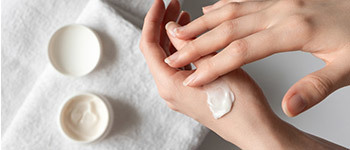We all know that it is essential to apply sunscreen before stepping out of the house. But not all of us know about the nuances of a sunscreen composition. Also, you might not always pick the right type of sunscreen for the purpose. Know that there are different types of sunscreen, and choosing the right one determines the success of obtaining the intended skin protection. Knowing how to use sunscreen and also the various applications of the different types of sunscreen are all as crucial as learning about the benefits of sunscreen.
Dr. Anuja Vaidya-Lathi, an expert dermatologist with over a decade of experience in the field, has plenty of valuable information to offer about sunscreens. In this article, she tries to answer all the common questions about sunscreens and their uses as well as how to pick them.
Why is sunscreen needed?

The following are the benefits of sunscreen that everyone should know about-
- Eliminate skin damage and the various physical implications of it occurring from UV exposure.
- Reduce sunburn that is characterised by redness and itchiness. Besides feeling hot, the skin might also be sore or develop blisters due to sunburn. A good sunscreen can prevent this.
- Effective prevention of photo allergies or allergic reaction to exposure to bright sunlight.
- Reduce pigmentation and also prevent pigmentation spots occurring due to overexposure to sunlight.
- Good sunscreens protect the skin from premature ageing and visible signs like fine lines and wrinkles.
- In the long run, sun damage can lead to several types of skin cancers. Regular use of sunscreen can help in preventing skin cancers occurring due to sun exposure.
How to choose a suitable sunscreen ?

Types of sunscreen
Physical sunscreens and chemical sunscreens are the two main types of sunscreens. There are different components used in these two types of sunscreens.


Use Right Sunscreen Right Way | Dr. Anuja Vaidya-Lathi Explains
A combination of chemical and physical sunscreens depending on the lifestyle would be the most suitable choice for men and women. This can also keep a check on the damage from UV rays effectively.
- Physical sunscreens
- Chemical sunscreens
SPF

Preferences

- For acne-prone skin, products that clog the pores can worsen the condition. This is why a lightweight non-comedogenic formula should be chosen.
- To cover large areas like shoulders, arms, and back, you can stick with quickly spreading lotions.
- For the face, you would get a matte look and easier application with gel-based sunscreen formulas.
Considering these quick tips, you can talk to your dermatologist to know about the right kind of sunscreen to choose for your skin based on the existing skin tone and skin health in general.
How to use sunscreen ?

- Remember to take a sufficient amount of product.
- Cover all the areas that are exposed and not just the face.
- Make it a point to cover the face, neck, arms, legs, and other exposed portions based on the clothes you wear. Do not ignore even the ears and fingers.
- Ensure that you use your product at least 20 minutes before your skin is exposed to sunlight.
- Even when you are indoors and on the days when it is cloudy, the impact of UV rays might still be felt by your skin. So, sunscreens are important. Never massage the product – simply aim at obtaining good coverage.
To know which sunscreen would work best for your skin type, get in touch with a dermatologist today. For more information on skin and hair care, do browse through our other articles on the website.














